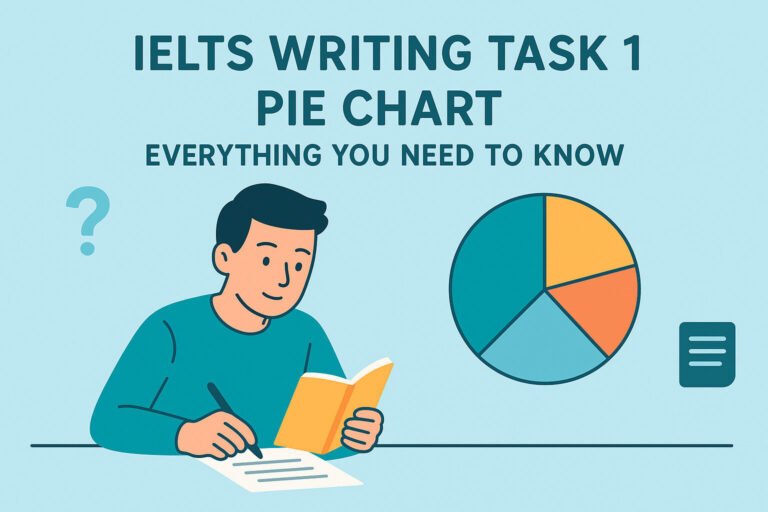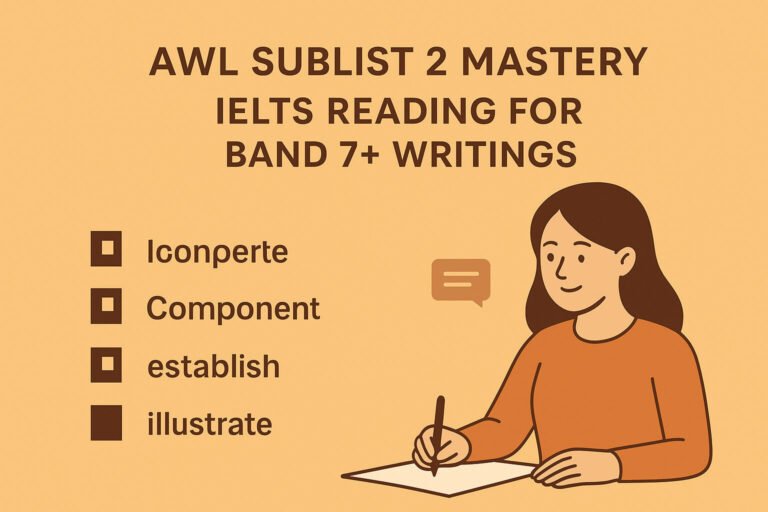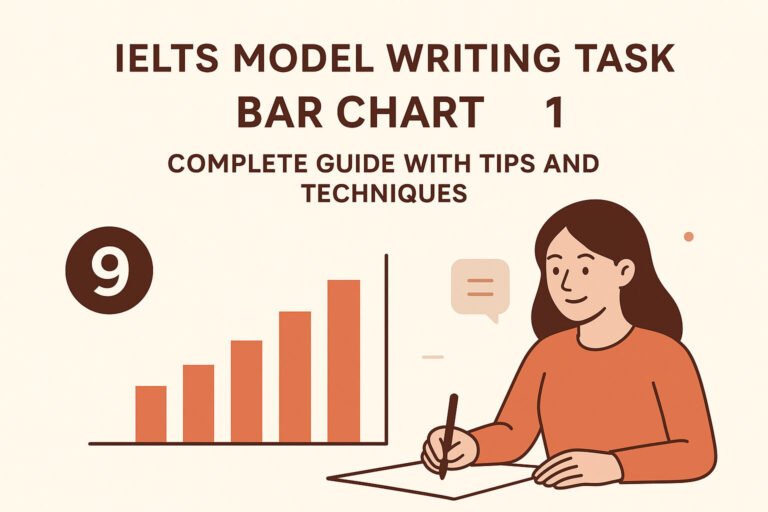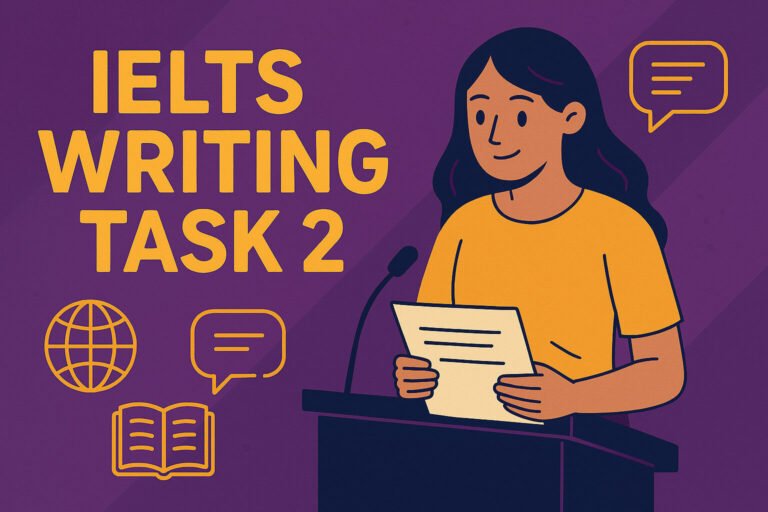Expert strategies on how to improve vocabulary for IELTS Writing. Boost your band score with tips, resources like Cambridge Vocabulary for IELTS, lists, and quizzes. Perfect for aspirants aiming for 7+ in the IELTS exam.
How to Improve Vocabulary for IELTS Writing: Proven Strategies
Hey there, future IELTS conqueror! Ever stared at a blank page during IELTS Writing practice, struggling to find the right words? You’re not alone—over 3 million people take the IELTS test each year, and many score lower than expected due to limited vocabulary. But here’s the good news: mastering vocabulary for IELTS can skyrocket your band score from a 6 to an 8+. In this guide, we’ll dive deep into how to improve vocabulary for IELTS Writing, with practical tips, real examples, and step-by-step plans tailored for you, the ambitious 18-30-year-old prepping for study abroad. Let’s turn those word woes into writing wins!
Why Vocabulary is Crucial for IELTS Writing Success
First off, let’s talk about why vocabulary matters so much in the IELTS exam. In Writing Task 1 and Task 2, examiners look for a wide range of academic vocabulary to describe trends, argue points, and express ideas clearly. A limited word bank can make your essays sound repetitive or simplistic, capping your score at 6.5 or below.
Think about it: If you’re describing a graph in Task 1, words like fluctuate or peak show precision, while in Task 2, terms like mitigate or exacerbate add depth to your arguments. Building strong IELTS vocabulary isn’t just about memorizing lists—it’s about using words effectively to impress examiners.
Strong vocabulary words elevate your writing from basic to band-7 territory. Focus on quality over quantity to avoid common pitfalls.
Understanding IELTS Writing Vocabulary Requirements
Before jumping into how to improve vocabulary for IELTS Writing, know what the test demands. The IELTS assesses lexical resource on a scale: Band 7 requires a sufficient range of vocabulary with some less common items, while Band 8 demands skillful use of precise terms.
Key areas include topic-specific words (e.g., environment: sustainable, biodiversity) and collocations (natural word pairs like make a decision). Avoid overusing basic words like “good” or “bad”—opt for synonyms like beneficial or detrimental.
Also, remember: Spelling and context count! Misusing a fancy word can hurt more than help. For instance, don’t say irregardless—it’s not standard English.
Tailor your IELTS vocabulary list to common themes like education, technology, and health for targeted improvement.
Step-by-Step Guide: How to Improve Vocabulary for IELTS Writing
Ready to level up? Here’s a practical, actionable plan on how to improve vocabulary for IELTS Writing. Follow these steps daily, and you’ll see progress in weeks.
Step 1: Assess Your Current Vocabulary Level
Start by identifying gaps. Take a vocabulary test or vocabulary quiz online—sites like British Council offer free ones. Note weak areas, like academic terms or idioms.
For example, if you’re weak in describing processes, quiz yourself on words like sequence, initiate, or culminate.
Action Steps:
- Download an IELTS vocabulary PDF from reliable sources.
- Spend 15 minutes daily reviewing 10-15 new words.
- Track progress in a journal: Word, definition, example sentence.
Self-assessment is key—know your starting point to measure growth in vocabulary for IELTS.
Step 2: Build a Daily Vocabulary Routine
Consistency is your best friend. Dedicate 30-60 minutes a day to expanding your IELTS vocabulary words.
Tips:
- Read academic articles from The Guardian or BBC—note unfamiliar words and their contexts.
- Use apps like Quizlet for flashcards: Create sets for academic vocabulary themes.
- Practice synonyms: Replace “big” with substantial, “important” with pivotal.
Real Example: In an essay on climate change, instead of “The problem is getting worse,” write: “The issue is exacerbating due to human activities.”
Incorporate vocabulary through writing: Draft one Task 2 essay weekly, aiming to use 5 new words.
Daily habits build lasting IELTS vocabulary—make it fun with apps and real-world reading.
Step 3: Leverage Top Resources for Vocabulary Building
Don’t reinvent the wheel—use proven tools. The Cambridge Vocabulary for IELTS book is gold; it covers advanced words with exercises and audio.
Other gems:
- IELTS vocabulary list PDF: Free downloads from Cambridge or IDP sites.
- Barron’s IELTS Vocabulary: Focuses on high-frequency words.
- Online platforms: Vocabulary.com for quizzes, or Memrise for themed sets.
Pro Tip: Pair reading with listening—watch TED Talks on IELTS topics and jot down vocabulary words.
For deeper practice, join forums like Reddit’s r/IELTS to discuss and apply new terms.
Quality resources like Cambridge Vocabulary for IELTS accelerate your learning curve.
Step 4: Focus on Topic-Specific Vocabulary
IELTS Writing often revolves around recurring themes. Build targeted IELTS vocabulary lists for each.
Common Topics and Examples:
| Topic | Key Vocabulary Words | Example Sentence |
|---|---|---|
| Environment | Sustainable, ecosystem, pollution | “Adopting sustainable practices can mitigate pollution in urban ecosystems.” |
| Education | Curriculum, pedagogy, literacy | “Modern pedagogy emphasizes digital literacy in the curriculum.” |
| Technology | Innovation, automation, cybersecurity | “Rapid innovation in automation raises concerns about cybersecurity.” |
| Health | Well-being, epidemic, vaccination | “Promoting mental well-being is crucial to prevent epidemics through widespread vaccination.” |
| Economy | Recession, inflation, entrepreneurship | “During a recession, controlling inflation fosters entrepreneurship.” |
Use this table as a starter—expand it with your own notes.
Action Steps:
- Pick one topic per week.
- Learn 20 related words.
- Write a sample paragraph using them.
- Review with a vocabulary quiz.
Theme-based learning makes vocabulary for IELTS stickier and more relevant.
Step 5: Practice and Review Actively
Mere memorization won’t cut it—apply what you learn. Write essays and get feedback via apps like Grammarly or IELTS tutors.
Techniques:
- Paraphrasing: Rewrite sentences using synonyms to boost flexibility.
- Collocation drills: Learn pairs like conduct research instead of “do research.”
- Error correction: Review old essays for vocab mistakes.
Example: Original: “People use too much plastic.” Improved: “Excessive reliance on single-use plastics exacerbates environmental degradation.”
Set weekly goals: Aim for 50 new IELTS vocabulary words, tested through writing.
Active practice turns passive knowledge into active academic vocabulary mastery.
Advanced Tips to Elevate Your IELTS Writing Vocabulary
Once basics are down, push further. Use idioms sparingly but effectively, like a double-edged sword for balanced arguments.
Avoid common errors: Don’t force complex words if they don’t fit—natural flow is key.
Incorporate linking words for cohesion: Furthermore, Conversely, In addition.
For band 8+, explore less common lexical items from Cambridge Vocabulary for IELTS advanced units.
Engage with native content: Podcasts like IELTS Liz for real-world application.
Mini Takeaway: Advanced tweaks refine your how to improve vocabulary for IELTS Writing journey.
FAQ: Common Questions on Improving Vocabulary for IELTS Writing
What is the best way to learn vocabulary for IELTS?
The best approach is a mix of daily reading, flashcards, and writing practice. Resources like Cambridge Vocabulary for IELTS provide structured lists and exercises to build IELTS vocabulary efficiently.
How many vocabulary words do I need for IELTS Writing?
Aim for 200-300 topic-specific vocabulary words, focusing on quality. Use an IELTS vocabulary list PDF to prioritize high-frequency terms for the IELTS test.
Can I improve vocabulary in 1 month for IELTS?
Yes, with consistent effort! Dedicate 1 hour daily to learning and applying new IELTS vocabulary words through quizzes and essays—many see a band jump.
Is there a free IELTS vocabulary PDF available?
Absolutely! Download free IELTS vocabulary PDF from official sites like British Council or Cambridge. They include themed lists and quizzes for vocabulary building.
How does vocabulary affect my IELTS Writing band score?
Vocabulary accounts for 25% of your score. A wide range of precise academic vocabulary can boost you to 7+, while repetition drops it below 6.
What’s the difference between general and academic vocabulary for IELTS?
General vocabulary is everyday words, while academic vocabulary includes formal terms like hypothesis or empirical. Focus on the latter for Writing Tasks.
Conclusion: Your Path to IELTS Vocabulary Mastery
You’ve got this! By following this guide on how to improve vocabulary for IELTS Writing, you’re equipping yourself with the tools for success in the IELTS exam. Remember, it’s about smart, consistent effort—turn those new vocabulary words into habits, and watch your writing transform.
Ready to practice? Check out our related post on IELTS Writing Task 2 Strategies for more insights. For official resources, visit the Cambridge IELTS site.
Strong CTA: Download our free IELTS vocabulary list PDF today and start your 30-day challenge—sign up below to get it in your inbox and crush that IELTS test! What’s one new word you’ll learn today? Share in the comments!









